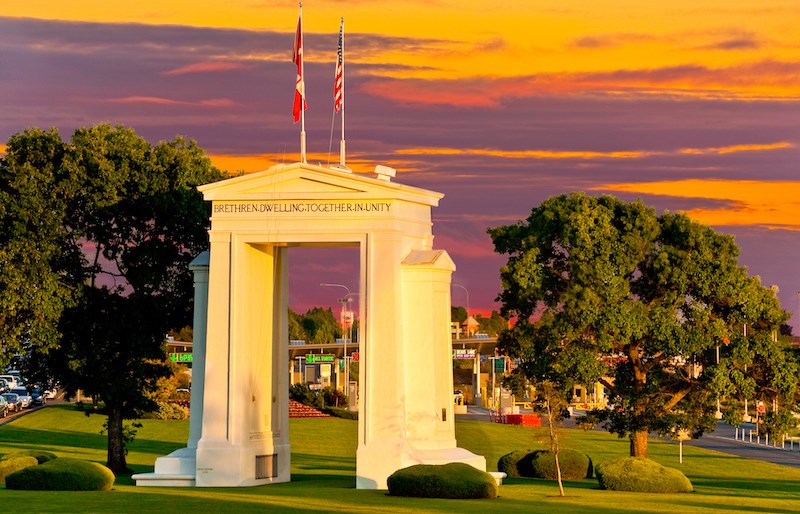British Columbians who have been eagerly anticipating the opening of the Canada-U.S. land border will be able to drive down beginning in early November.
But fully vaccinated land travellers will still need to get tested for COVID-19 — even if they are only heading down to the United States for the day.
On Tuesday (Oct. 12), the Biden administration announced that the U.S. will open its borders to fully vaccinated travellers in Canada and Mexico.
Travellers will be considered to be fully vaccinated if they have received a full course of a COVID-19 vaccine approved by either the U.S. Food and Drug Administration or the World Health Organization. This means Canadians who were immunized with the Oxford-AstraZeneca vaccine may travel south of the border, too.
U.S. officials haven't said whether the new rules , however.
Beginning in early November, the U.S. plans to allow fully vaccinated visitors from a host of countries where stateside travel has long been restricted, including China, India, Ireland, Iran, South Africa, Brazil and the 26 European countries without border controls, known as the Schengen group.
No specific dates have yet been announced.
Unlike air travel, for which proof of a negative COVID-19 test is required before boarding a flight to enter the U.S., no testing will be required to enter the U.S. by land or sea, provided the travellers meet the vaccination requirement.
COVID-19 testing for Canadians returning home
For now, the Canada Border Services Agency (CBSA) can only comment on the current travel measures. Spokesperson Rebecca Purdy told Vancouver Is Awesome that all Canadian travellers will need to take a test in order to re-enter the country.
"Travellers arriving by land or marine mode from the United States must take a molecular test in the United States within 72 hours of their planned entry into Canada," she explained.
"However, for short trips that are less than 72 hours, Canadian citizens, people registered under the Indian Act, permanent residents and protected persons travelling to the United States are allowed to do their pre-entry molecular test before they leave Canada.
"If the test is more than 72 hours old when they re-enter Canada, they will be required to get a new pre-entry molecular test in the United States."
So, while there isn't a testing requirement for fully vaccinated travellers to enter the United States, Canadians will need to get tested before they leave the country or before they return home.
All Canadians five years of age or older must provide proof of a negative COVID-19 molecular test to return to the country. Screening tests for work or travel are not covered by public health services.
Due to overwhelming demand, many labs cannot guarantee a turnaround time for test results. Travellers who plan on staying in the United States longer than 72 hours will need to get tested south of the border. Some testing locations may offer a "rush" option, but if the test results do not arrive on time you won't be permitted to travel.
COVID-19 testing for travel may cost upwards of $150 CAD per person, although prices vary. Find out more information that provide the tests.
Currently, the Government of Canada states that you should avoid all travel outside of the country until further notice due to the novel coronavirus pandemic.
If you do plan to travel, make sure you check the for your destination twice: once when you are planning your trip, and again shortly before you leave.
Find out more information about .



